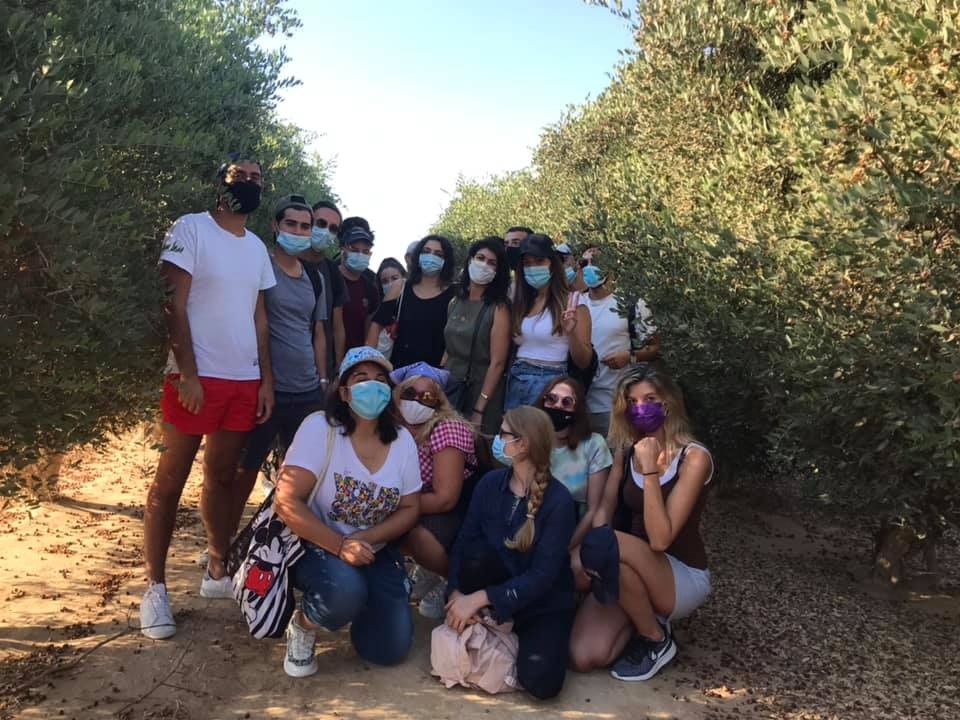
In the days leading up to 9/11, Amos Hermon — then-head of the Jewish Agency for Israel’s Jewish Students Delegation — welcomed a delegation from the United Nations World Conference Against Racism (WCAR). Also known as Durban I, Hermon said he prefers to call it the “Festival of Hate Against Israel.”
On that September day, the road from the airport to the venue in Durban, South Africa, was lined with activists holding swastika-daubed placards with venomous slogans accusing Israel of apartheid and genocide.
“We were in the eye of the storm of international hatred against Israel,” Hermon recalled. “It was awful.”
Nearly two decades later, Hermon is still at the forefront of Jewish leadership as the CEO of Israel Experience, the Jewish Agency’s educational subsidiary and Israel’s largest incoming tourism company. Israel Experience brings 30,000 young Jews to the country every year through groups like Masa and Birthright. He points to the ebbing of Jewish identity in the Diaspora as the chief motivation for his work. “After you see the problems facing Western Jewish communities, you understand it needs to be your life’s mission to work on them.”
Connection to Israel, he continued, is a primary function in building Jewish identity. He believes too many Jewish students on campuses, especially on the West Coast, are ill-equipped to deal with pro-Palestinian or boycott, divestment and sanctions (BDS) groups. “They are either apathetic or they don’t have the knowledge to fight back, or they don’t want to fight,” Hermon said. Experiencing Israel firsthand allows them “to see the conflict, not read the conflict,” he added.
The company took drastic measures to ensure that the incoming students adhered to the health ministry’s standards, including installing cameras and “corona trustees” to ensure that participants did not violate the mandatory two-week quarantine.
Still, at times Hermon is despondent about whether his work is making a difference. “I don’t know if we are succeeding. Fewer young people are coming to Israel. Jewish communities are getting smaller and anti-Semitism on campuses is going up.”
And the pandemic wasn’t exactly a boon for Hermon’s business. Earlier this month, his organization made headlines for all the wrong reasons with the release of a statement by the health ministry that 17,000 foreign students — 5,000 of whom were from Israel Experience — were being allowed into the country. The news sparked an outcry and a media circus, as lawmakers on both sides of the fence hurled accusations of “murder” and “anti-Semitism” at one another.

“They accused us of being ‘virus spreaders.’ We were so angry and so ashamed to have to explain it to the Jewish communities [overseas],” Hermon said.
The Israel Experience took drastic measures to ensure that the incoming students adhered to the health ministry’s standards, including installing cameras and “corona trustees” to ensure that participants did not violate the mandatory two-week quarantine upon arrival. Hermon said not a single participant who was either already in Israel or who had arrived since the outbreak in mid-March had contracted COVID-19.
He also believes some of the animosity surrounding the incident stems from the fact that strengthening Israel-Diaspora relations has never been a top priority for the Israeli government or its citizens. “Unfortunately, there [is] too [much] tsuris here,” he said. “They don’t understand that having a Diaspora that is supportive and building Jewish leadership has critical impact [on Israel] both in times of war and peace.”





















 More news and opinions than at a Shabbat dinner, right in your inbox.
More news and opinions than at a Shabbat dinner, right in your inbox.